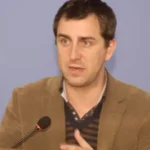The involvement of the European Union (EU) in the Sahel as part of the fight against terrorism has not produced the expected results, believe the head of European diplomacy and the MEPs meeting in plenary session in Strasbourg.
Over the past 10 years, the EU has invested 600 million euros in civil and military missions in the Sahel.
However, the good results are not noticeable. “In the last ten years, we have spent 600 million euros on civilian missions and military training in the Sahel. He has trained some 30,000 members of the security forces in Mali and Niger, and 18,000 military personnel. And so, this did not serve to strengthen armed forces which support democratic governments, but which overthrow them,” regrets Joseph Borell, head of European diplomacy.
For Joseph Borrell, the “corrupt” military juntas that overthrew elected governments have neither the means nor the intention to fight against terrorists.
He continues that we should not overestimate the anti-French, anti-European, anti-Western sentiments expressed during meetings and demonstrations because they are “often paid to agitate anti-European messages”.
All the same, MEPs believe that the EU “must not abandon the Sahel”, which remains a “strategic” region for the “security” of Europe and the “control” of migration. They encourage the Union to support the efforts of the Economic Community of West African States (ECOWAS).
This article is originally published on tchadinfos.com







